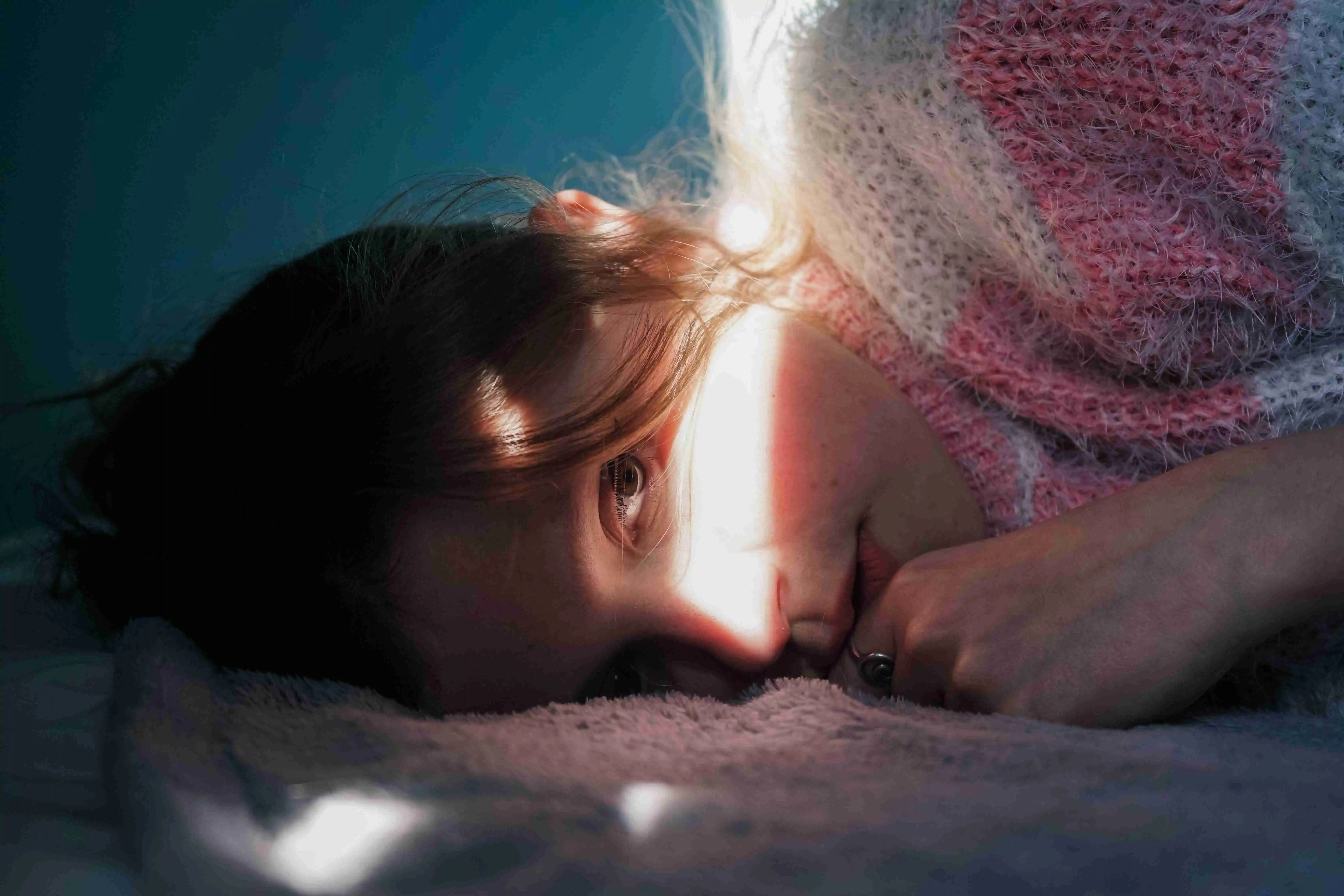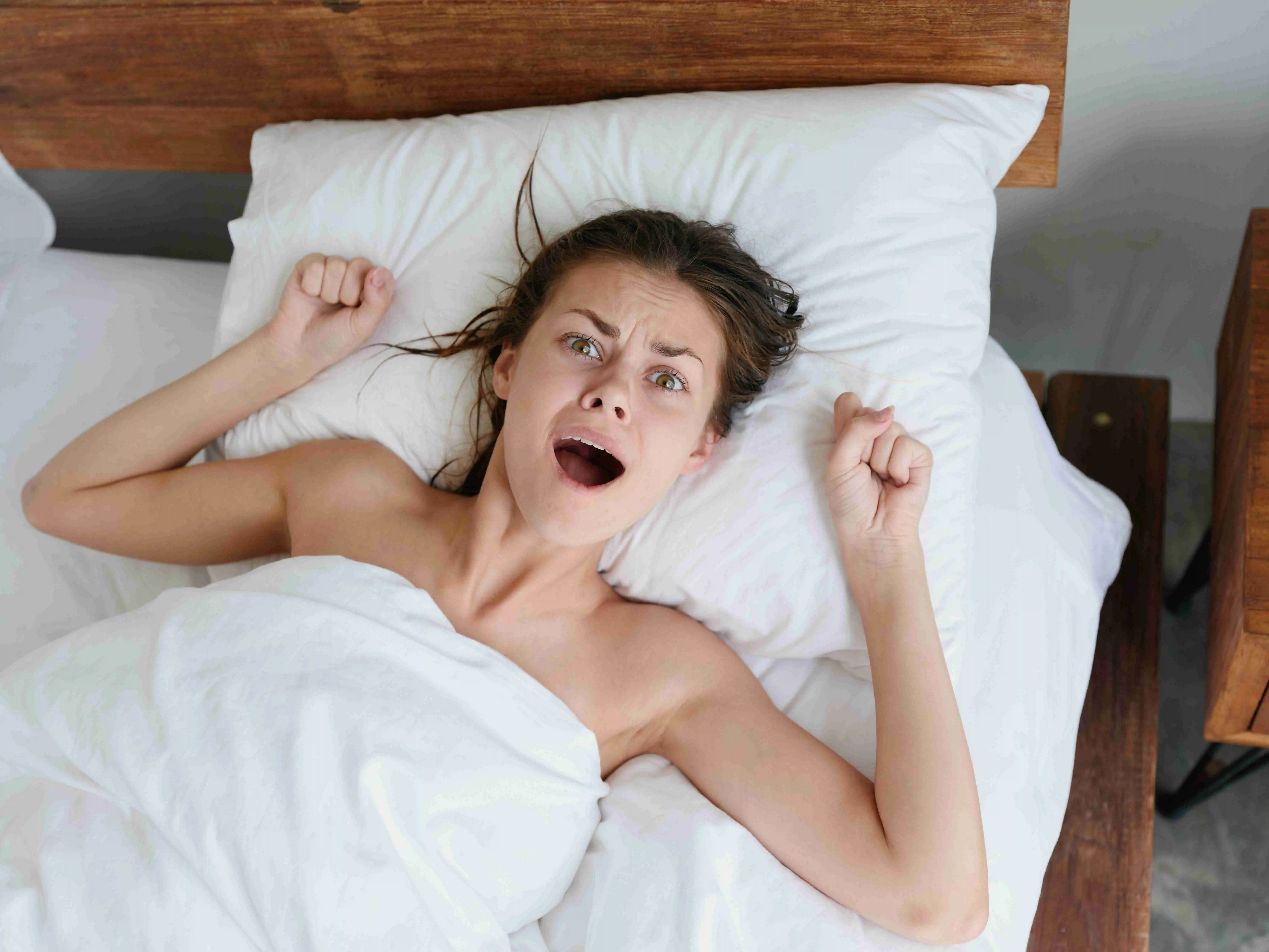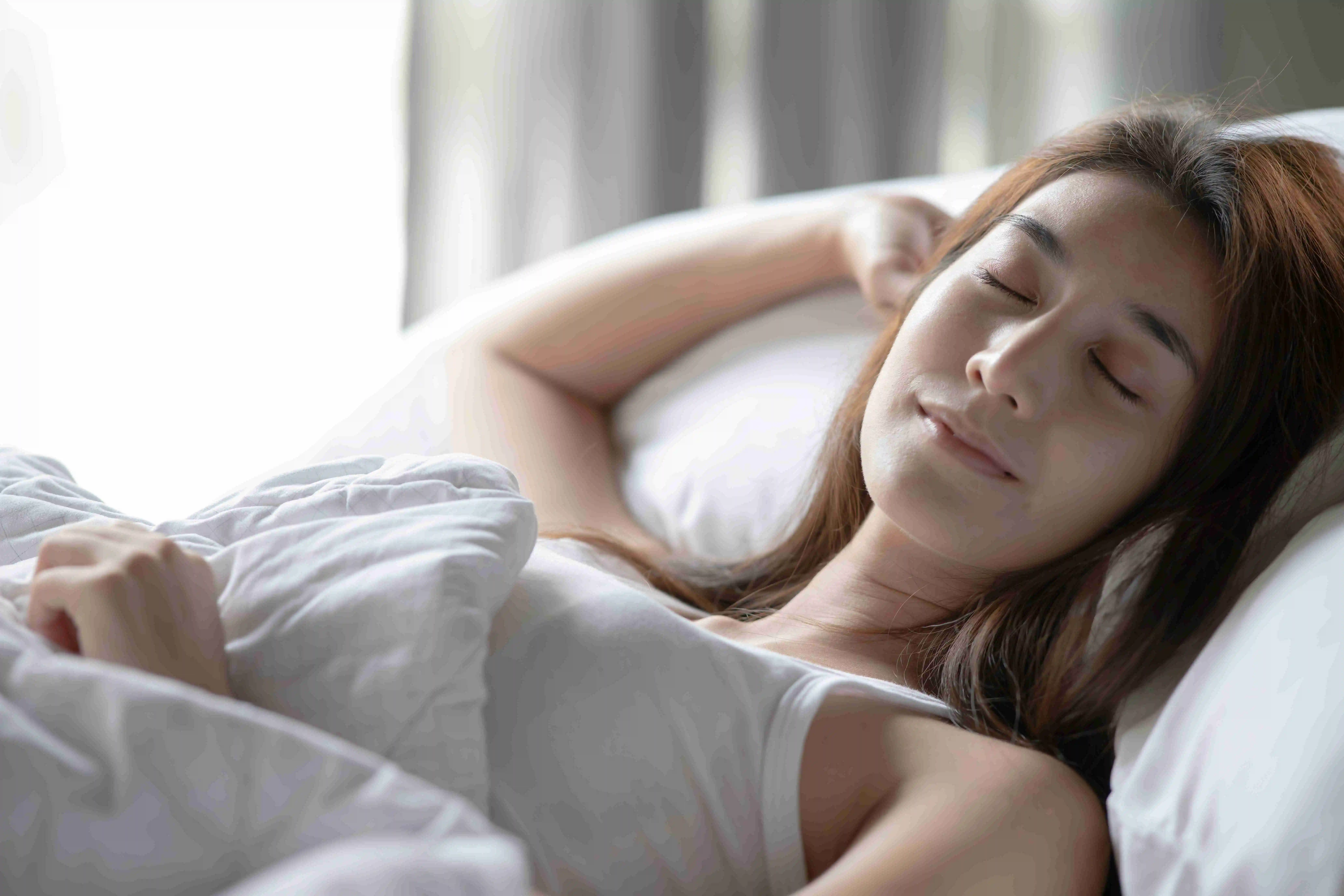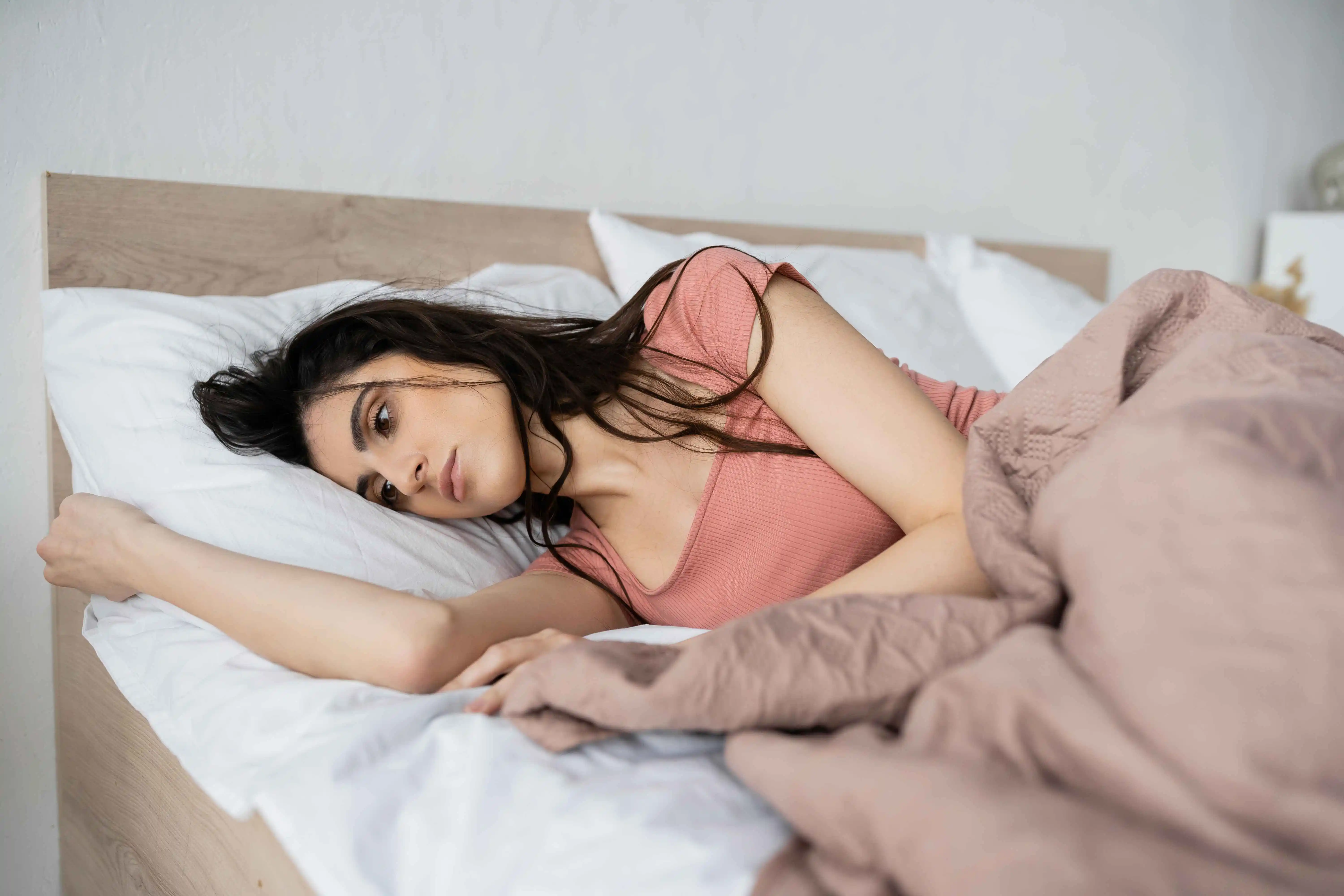Depression is a very common mental health issue that a lot of people suffer from, and depression often triggers other mental health issues that can disrupt your overall well-being.
One of the main problems that is often associated with depression is its negative impact on sleep, as it could cause insomnia or excessive sleepiness. So it’s important to notice these changes in our sleeping behaviors and make sure that they're associated with depression so we can address them.
What is depression, and what is its relationship to sleep?
Depression is a mental health disorder characterized by persistent feelings of sadness, hopelessness, and a loss of interest in activities. It affects one's thoughts, emotions, and behaviors, often resulting in a decline in overall functioning.
Sleep deprivation and depression are often connected, whether by making it hard to sleep or by causing excessive sleepiness. This disruption of the sleep cycle often further worsens the symptoms of depression.
The Impact of Depression on Sleep Patterns

One common symptom of depression is disrupted sleep patterns, which can manifest itself in different ways, it might cause excessive sleep, and prevent any sort of restorative sleep.
Depression can have a significant impact on sleep patterns, disrupting the normal sleep-wake cycle and affecting the quality of sleep. One of the main ways depression affects sleep is by causing disturbances in the REM (rapid eye movement) stage of sleep.
REM sleep is important for emotional regulation and memory consolidation, and disruptions in this stage can lead to mood instability and difficulty processing emotions.
Causes of Depression
Depression is a complex mental health condition that can have a profound impact on an individual's well-being. While the exact causes of depression are not fully understood, several factors are believed to contribute to its development.
Biological Factors
- Genetics and Family History: Individuals with a family history of depression are more likely to develop the condition themselves. This suggests a genetic predisposition to the disorder.
- Neurochemical Imbalances: The brain relies on a delicate balance of neurotransmitters, such as serotonin, dopamine, and norepinephrine, to regulate mood and emotions. When these neurotransmitters are not functioning properly, it can lead to symptoms of depression.
- Hormonal Changes: Hormones play a crucial role in regulating mood, and imbalances or fluctuations in hormone levels can disrupt this delicate balance, leading to depressive symptoms.
Psychological Factors
- Traumatic Life Events: Experiencing a traumatic event, such as the loss of a loved one, physical or emotional abuse, or a major life change, can trigger feelings of sadness, hopelessness, and despair. These events can be particularly challenging to cope with and may overwhelm an individual's ability to manage their emotions effectively.
- Chronic Stress: When individuals experience ongoing stress without adequate support or coping mechanisms, it can lead to the depletion of mental and emotional resources, making them more susceptible to depression.
- Negative Thought Patterns: Negative thought patterns can be one of the causes of depression. When someone consistently engages in negative thinking, it can have a detrimental effect on their mental health. These thought patterns can include constant self-criticism, pessimism, and a tendency to focus on the negative aspects of life.
Symptoms of Depression
Symptoms of depression vary from one person to another, and recognizing these symptoms is crucial to seeking appropriate help and treatment. It is important to remember that depression is a treatable condition, and with the right support and interventions, individuals can regain their quality of life and find relief from their symptoms.
Emotional and Cognitive Symptoms
- Persistent Sadness and Low Mood: Individuals with depression often experience a deep sense of hopelessness and despair. This sadness can be overwhelming and can impact every aspect of their lives, making it difficult for them to function daily.
- Difficulty Concentrating: People with depression often struggle to focus on tasks, whether it be at work, school, or in personal relationships. They may find themselves easily distracted and unable to complete tasks efficiently. This lack of concentration can further exacerbate feelings of frustration and contribute to a sense of worthlessness.
- Excessive Guilt: Feelings of guilt are also common among individuals with depression. They may blame themselves for their condition, believing that they are somehow responsible for their suffering. This self-blame can lead to a vicious cycle of negative thinking.
Physical and Behavioral Symptoms
- Changes in Sleep Patterns: Individuals with depression may experience difficulty falling asleep or staying asleep throughout the night. On the other hand, some individuals may find themselves oversleeping and feeling lethargic during the day.
- Loss of Energy: Individuals with depression often feel physically and mentally exhausted, even after minimal exertion. This lack of energy can make it difficult for them to perform even simple tasks, such as getting out of bed or taking care of personal hygiene.
- Changes in Appetite or Weight: Some individuals may experience a decrease in appetite, leading to weight loss and a lack of interest in food. Conversely, others may turn to food as a coping mechanism and experience an increase in appetite, leading to weight gain.
Common Sleep Disorders Associated with Depression
Depression is a mental health disorder that affects millions of people worldwide. Numerous sleep disturbances are frequently present along with it, which can worsen depression sufferers' symptoms and overall quality of life.
Insomnia
Insomnia, one of the most common sleep disorders associated with depression, is characterized by difficulty falling asleep or staying asleep throughout the night. This can lead to daytime fatigue, irritability, and difficulty concentrating. Insomnia can be a result of the emotional and cognitive changes that occur with depression, or it can be a symptom of an underlying sleep disorder.
Hypersomnia
Unlike insomnia, hypersomnia is characterized by excessive sleepiness during the day, despite having adequate sleep at night. People with hypersomnia may find it difficult to wake up in the morning and often feel groggy and fatigued throughout the day.
This excessive sleepiness can interfere with daily activities and productivity, further exacerbating the symptoms of depression.
Sleep Apnea
Depression and sleep apnea are often associated together, as sleep apnea can lead to poor sleep quality, as individuals may wake up multiple times throughout the night due to breathing difficulties. This fragmented sleep can contribute to feelings of fatigue, irritability, and mood disturbances commonly associated with depression.
Restless Legs Syndrome (RLS)
Restless Legs Syndrome (RLS) is a neurological condition characterized by an uncontrollable urge to move the legs, particularly during periods of inactivity or at night. This condition can cause discomfort and disrupt sleep, leading to daytime fatigue and decreased quality of life.
Circadian Rhythm Sleep Disorders
Circadian Rhythm disorder occurs when a person's internal body clock, which regulates sleep and wakefulness, is out of sync with their external environment. People with depression often experience disruptions in their sleep-wake cycle, leading to difficulties falling asleep or staying asleep.
These disturbances can further exacerbate their depressive symptoms and make it harder for them to function during the day.
Nightmares

Nightmares are vivid and distressing dreams that often cause the person to wake up feeling anxious or frightened. Individuals with depression may experience them as a manifestation of their emotional distress. Nightmares can disrupt sleep and lead to poor sleep quality, which can worsen depressive symptoms and contribute to a vicious cycle of sleep deprivation and low mood.
Treatments for Depression
Depression is a very serious mental health issue, and it could make the lives of many individuals very difficult. Fortunately, there are several effective treatments available for depression that have shown great results in reducing the symptoms of depression.
Counseling
Counseling, also known as psychotherapy, is a widely used treatment for depression. It involves talking to a trained professional who can help individuals identify and address the underlying causes of their depressive symptoms.
Medications
Medication is often prescribed to individuals with depression. Antidepressant medications work by balancing chemicals in the brain that are involved in mood regulation. These medications can be highly effective in reducing depressive symptoms, but it may take some time to find the right medication and dosage for each individual.
Psychotherapy
- Cognitive Behavioral Therapy (CBT): CBT is a type of counseling that focuses on helping individuals identify negative thought patterns and develop healthier ways of thinking. This can be particularly helpful for individuals with depression, as negative thought patterns often contribute to their symptoms.
- Interpersonal Therapy (IPT): IPT focuses on improving interpersonal relationships and resolving conflicts that may be contributing to depression.
- Dialectical Behavior Therapy (DBT): DBT combines elements of CBT with skills training to help individuals regulate their emotions and develop effective coping strategies.
- Psychodynamic Therapy: Psychodynamic therapy, on the other hand, explores how past experiences and unresolved conflicts may be influencing current depressive symptoms.
Alternative Treatments
- Electroconvulsive Therapy (ECT): ECT involves the use of electric currents to stimulate the brain and induce a controlled seizure. This procedure is typically performed under general anesthesia and is proven to be highly effective, especially for severe cases of depression.
- Transcranial Magnetic Stimulation (TMS): TMS uses magnetic fields to stimulate specific areas of the brain that are associated with mood regulation. Unlike ECT, TMS does not require anesthesia, and patients can resume their normal activities immediately after the session.
- Light Therapy: Light therapy is another alternative for treating depression, particularly seasonal affective disorder (SAD), which is a type of depression that occurs during specific seasons, typically in winter when there is less natural sunlight.
- Acupuncture: Acupuncture is an ancient Chinese practice that has shown potential in treating depression. It involves the insertion of thin needles into specific points on the body to promote energy flow and balance.
Practical Tips for Improving Sleep Quality

One of the most debilitating symptoms of depression is the occurrence of changes in your sleep pattern, which in turn significantly decreases sleep quality. However, by following some tips, you can overcome the negative impact of that symptom and prioritize sleep efficiency.
Establish a Consistent Sleep Schedule
Establishing a consistent sleep schedule is crucial to improving sleep quality, which depression negatively impacts. Going to bed and waking up at the same time every day helps regulate our body's internal clock, known as the circadian rhythm, which reduces the effects of insomnia and depression.
This consistency allows our bodies to anticipate and prepare for sleep, making it easier to fall asleep and wake up feeling refreshed. By sticking to a schedule, we can train our bodies to naturally feel tired at night and wake up in the morning.
Create a Relaxing Bedtime Routine
Engaging in relaxing activities before bed can help signal the body that it is time to wind down and prepare for sleep. This can include activities such as reading a book, taking a warm bath, or practicing relaxation techniques like deep breathing or meditation.
Incorporating these activities into a nightly routine will teach our bodies to associate them with sleep and combat the insomnia caused by depression, making it easier to transition into a restful state of sleep and maintain sleep continuity.
Check out our article on Bedtime Routine Guide.
Limit Screen Time
The blue light emitted by electronic devices such as smartphones, tablets, and computers can interfere with the body's production of melatonin, a hormone that is responsible for sleep regulation. We recommend limiting screen time before bed to improve sleep quality. Instead of scrolling through social media or watching TV right before sleep, try engaging in other relaxing activities that do not involve screens.
Limit Caffeine and Alcohol Consumption
Caffeine and alcohol can disrupt sleep patterns and make it difficult to fall asleep or stay asleep throughout the night. Caffeine, found in coffee, tea, and some soft drinks, is a stimulant that can keep you awake.
Alcohol, on the other hand, may initially make you feel drowsy but can disrupt the normal sleep cycle and lead to fragmented and restless sleep. It is advisable to avoid consuming these substances close to bedtime to promote better sleep quality.
Address Worries
Often, our minds are filled with thoughts and concerns that can keep us awake at night. Taking the time to address these worries can help calm the mind and prepare it for sleep. Writing in a journal or practicing relaxation techniques such as deep breathing or meditation can help reduce anxiety and promote more restful sleep.
Exercise Regularly
Engaging in physical activity during the day can help regulate the body's internal clock and promote better sleep at night. Exercise releases endorphins, which can improve mood, reduce stress, and contribute to better sleep.
Go to a Therapist
A therapist can provide guidance and support in addressing any underlying psychological or emotional issues that may be affecting sleep. By identifying and addressing these issues, individuals can experience improved sleep quality.
Additionally, therapists can offer techniques and strategies for managing stress and anxiety, which are common causes of sleep disturbances.
FAQs
What are the causes of depression?
One of the primary causes of depression is a chemical imbalance in the brain. Neurotransmitters, such as serotonin and dopamine, play a crucial role in regulating mood, and when these chemicals are imbalanced, it can lead to symptoms of depression. Another common cause of depression is genetics, as individuals with a family history of depression are more likely to develop the condition.
Can depression lead to sleep disorders?
Depression and sleep disorders often lead to each other. Depression can indeed lead to sleep disorders. People with depression may experience difficulties falling asleep, staying asleep, or experiencing restful sleep. On the other hand, depression can also lead to excessive sleepiness, or hypersomnia, where individuals constantly feel tired and have an increased need for sleep.
Is insomnia a symptom of depression?
Insomnia is one of the symptoms of major depression. Insomnia refers to difficulty falling asleep, staying asleep, or experiencing non-restorative sleep. Major depressive individuals often struggle to fall asleep at night, and even when they do, they often experience disrupted sleep.
When should you see your doctor regarding depression?
If you are experiencing symptoms of depression, it is important to seek medical help as soon as possible. It is advisable to see your doctor if you have been feeling persistently sad, hopeless, or empty for more than two weeks.
Does depression make you sleep more?
Depression can have a significant impact on sleep patterns, and there's a phenomenon called depression sleeping, as most people associate depression and too much sleep, or depression and sleeping all day, however, depression can cause a variety of sleep disturbances, including insomnia or excessive sleepiness, which makes depression and lack of sleep also one of the symptoms of depression.
Conclusion
Sleep and depression are closely intertwined. Sleep disruption can contribute to the development or worsening of depressive symptoms, such as insomnia, while depression can disrupt sleep patterns. It is essential to address both aspects to effectively manage depression and improve sleep quality.
Dom Abraham
As the lead content writer at Sleepiverse. Dom pours his heart into writing mattress reviews, bedding product reviews, and medically-reviewed health articles. Dom is from Portugal and likes to spend his free time writing on the beach as it gives him a sense of comfort. Aside from writing mattress reviews in front of the soothing beach view, Dom likes to experiment with new amazing food ideas.


